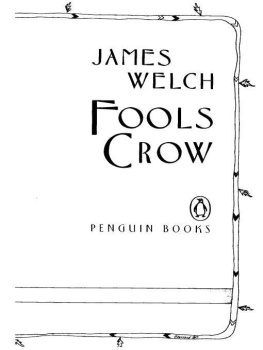
FOOLS RUSH INN
FOOLS RUSH INN
M ORE D ETOURS ON THE R OAD TO C ONVENTIONAL W ISDOM
by Bill James

FOOLS RUSH INN
More Detours on the Road to Conventional Wisdom by Bill James
Edited by Gregory F. Augustine Pierce
Cover design by Tom A. Wright
Text design and typesetting by Patricia A. Lynch
Copyright 2014 by Bill James
Published by ACTA Sports, a division of ACTA Publications, 4848 N. Clark Street, Chicago, IL 60640 (800) 397-2282 www.actasports.com
All rights reserved. No part of this publication may be reproduced or transmitted in any form or by any means, electronic or mechanical, including photocopying and recording, or by any information and retrieval system, including the Internet, without permission from the publisher. Permission is hereby given to use short excerpts (under 500 words) with proper citation in reviews and marketing copy, online blogs, and scholarly papers and class handouts.
Library of Congress Number: 2014937594
C ONTENTS
I NTROWLEDGEMENTS
by Bill James

Snatched from the great gulf, like oysters by bibliomaniac pearl-divers, there must they first rot, then what was pearl, in Camille or others, may be seen as such, and continue as such.
T HOMAS C ARLYLE
THE FRENCH REVOLUTION

The Core Acknowledgement Cadre for this book is three peopleJohn Dewan, Dave Studenmund and Greg Pierce. This book ishow should we sayan outgrowth or a side effect of Bill James Online. I write probably 40, 50 articles a year for Bill James Online. We charge $3 a month to be a member of BJOL, just to keep the riffraff out. John Dewan also writes articles for BJOL, and manages the business, and Dave Studenmund manages the site on a day to day basis. Greg Pierce periodically reviews the articles I have published there, selects a few of them which he sees as being worthy of paper and ink, edits them; occasionally we update something if we are republishing it after a passage of time. These selected articles become a book. This would be exactly such a book.
When the internet was new there was a perception that what was published on the web was transient and therefore of little significance. I remember that very early, people would say that something was published on the web, in quotation marks, as if it had not really been published, although in truth this usage of the term published is consistent with the very old meaning of the term, which pre-dates the publishing industry. We are beginning to come to terms with the reality that the opposite is true: that that which is published on paper is transient, while that which is published electronically will last forever.
We are in this long transition, where everything which has ever been published on paper and which has managed to survive this long is being saved for the future by creating an electronic image of it. This process will go on for a good many years yet, at least another twenty years, and possibly a hundred. Eventually we will reach the place where the words of the past can be searched at will, as easily as one can swim across an ocean.
That is the problem, that we have made publishing so easy that there is now a totally unmanageable amount of it. Thomas Carlyle was talking about rotting newspapers (I think. When Carlyle really gets rolling, even his most devoted fans cant figure out what in the hell he is talking about.) But he had mentioned newspapers in the previous sentence, and I think what he was talking about was the necessity of letting the old newspapers rot away, so that we can see what is left standing after the bluster and tumult have died away. What do we do when the past no longer rots away, but is left standing to haunt the next millennium like a paper mach ghost?
For two hundred years or more, book publishers have beenapologizing in advance for the grandiosity of the languagebook publishers have been the gatekeepers of immortality. It was they who were tasked to figure out what there was among the billions of words written each year that was worth saving for the next generation. It is an awkward irony that, right at the moment when the economic underpinnings are being kicked from beneath the publishers, we find ourselves most in need of people to sort through the piles and figure out what is worth saving. It is unclear who will fill this role in the next generation. The academics would like to do it, collectively, but individually they burn off most of their energy fighting one another for status within their own universe. The people who have the best tools to do it seem to be the most obsessed with making money, and thus tend to immortalize celebrity, rather than wisdom.
Have you ever known anybody who had no internal filter, who would simply say the first thing that came into her head without stopping to think how this might be perceived by others? The world is that woman now, that person who says whatever she has to say, right from the heart, no filters, buddy. When publishing becomes effortless, it gives rise to super-publishing. We sort through what is written after it is published, rather than before. Greg Pierce, then, is not my publisher, because nobody needs a publisher any more, but my super-publisher, my filter-after-the-fact who sorts through my online grunts and groans, my yelps and hollers, looking for a little bit of insight. I appreciate the effort.
The main acknowledgment for the book, in a sense, is the BJOL readers; I dont know most of their names or care to know them, but they are always suggesting things to write aboutnot directly, in the sense of You should write about this, Bill James, but by reacting to what was written before, by pointing out what was unsaid before, by seeing different implications of what we have been talking about. They keep the water moving through the stream, and these articles would be like the pools that collect around the edges of the stream. The book was supposed to be called Pools Rush In, but there was a typo, and we were never able to get that corrected. Thats what Greg told me, anyway.
Thank you all for reading, because I would go crazy in three months if I couldnt write, and without the readers I am afraid I would have to stop writing. Writing is like a drug to me; after 40 years awritin I still wake up in the middle of the night, anxious to get to the keyboard, and often have to force myself to stay in bed and finish my sleep. Like most writers, I tend to regard everything that happens after the prose leaves my office as mere process at best, interference at worst, but the collapse of the newspaper business and the ever-growing difficulties of the book publishing biz remind us that this is not the case, that nothing is automatic, and editors should not be taken for granted. I appreciate all of your help.

D IVIDING B ASEBALL H ISTORY INTO E RAS
by Bill James

I first became aware of the concept of dividing baseball history into eras with the publication of the Neft/Cohen Baseball Encyclopedia.
Next page

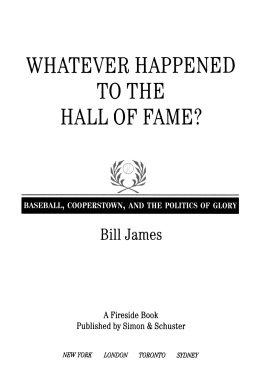



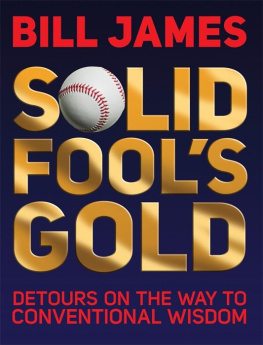

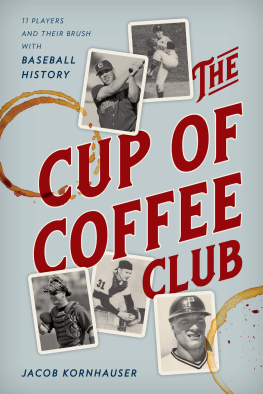
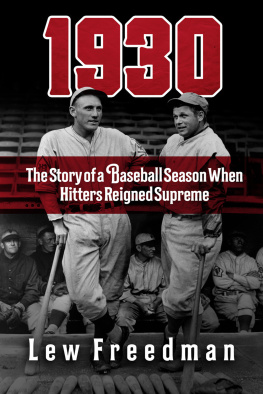
![Baseball Info Solutions. - The Bill James handbook 2014: [the complete up-to-date statistics on every major league player, team and manager through last season]](/uploads/posts/book/187296/thumbs/baseball-info-solutions-the-bill-james-handbook.jpg)
